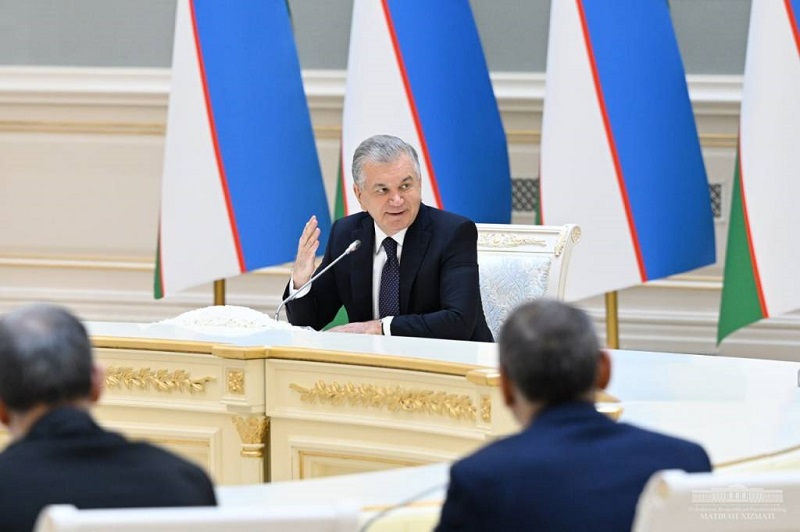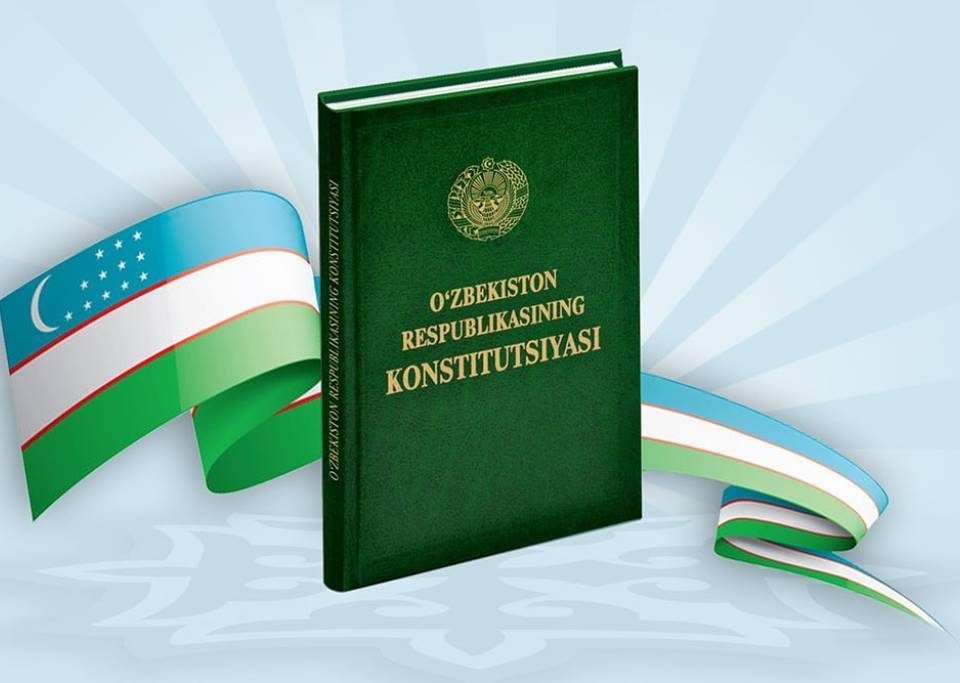The nationwide discussion of the draft constitutional law on introducing amendments and addenda to the Constitution of the Republic of Uzbekistan is in full swing. Thousands of proposals submitted by our citizens are received in this process.
The bill is being deliberated jointly by the Constitutional Commission and the Legislative Chamber’s two committees – on Combating Corruption and Judiciary Issues, and Democratic Institutions, NGOs and Civil Society Institutions.
As is known, by the resolution of the Legislative Chamber of the Oliy Majlis, dated 15 July 2022, the period for public discussion of the draft Constitutional Law on introducing amendments and addenda to the Constitution of the Republic of Uzbekistan was extended for the second time – through to 1 August 2022.
One may ask a natural question: What is the motive behind such a decision? There are the following four reasons for the extension of the public discussion period.
The first reason. The number and importance of proposals made by people on the draft law are increasing during the meetings and dialogues held in places with the participation of members of the Constitutional Commission, deputies, senators, scholars, and experts. That circumstance suggested that 10-15 days were not enough for public discussion.
During the first phase of the constitutional reform, from May 20 to June 24, more than 62,000 proposals were received from our citizens.
The second reason. Over 80,000 proposals were submitted to the draft constitutional law within a month.
When it comes to the dynamics of an increase in the number of proposals, it is appropriate to cite specific numbers.
It is not a secret that a total of 62,238 proposals were received between May 26 and June 25, when the Constitutional Commission was set up and the collection of recommendations began. A total of 88,515 proposals were received from June 25 to July 21, when the draft constitutional law was drawn up and brought to public attention.
In the first decision of the parliament to announce the public debate, it was determined that the debate would be held from June 25 to July 5. In the first ten days of the discussion, more than 49,000 suggestions on the bill were received from our people. It has been observed that the activity of sending proposals was growing day by day. For instance, on the first day of the discussion, 2,771 proposals were made, and by the 6th day, the number of daily proposals reached 14,702. That is, there were times when the number of proposals received daily multiplied almost fivefold.
Although the growth of daily stats reached some stability during the second extension of the public discussion period, that is, from July 5 to July 15, their total number remained high, namely, more than 15,000 proposals were received in the second ten days.
This triggered the lower house of the national parliament to once again decide to extend the period of public discussion.
The third reason. In the course of the public debate, proposals continue to be made about the national legal framework and the practice of law enforcement. Each of these proposals is a treasure for our lawmakers, the Legislative Chamber of the Oliy Majlis. During the nationwide discussion, it was considered useful to make perfect use of this unique form of communication, to make full sense of the opinions of all age groups of our people.
The fourth reason. The parliamentary decision to extend the term of the public discussion was made building on the wishes and demands of our citizens. The Constitution is the principal document defining the future of our nation. In such a situation, the main goal is not to conduct the process strictly by the established timeline, but rather to listen to the opinion of the people until the end, and then make a conclusion. And this process prevents hastiness. We followed this very objective.
In the meantime, one should note that after the deadline was postponed for the second time (to August 1), we observed a significant decrease in the dynamics of the number of daily proposals. For example, on July 16, the number of appeals was 1,695, but by July 19, the stats were as low as 516.
Now, let us focus on the activities of the Constitutional Commission and the two responsible committees and the process of consideration of proposals.
During the past period, the committees in charge have held about 40 sessions on the completion of the bill, and together with scientists, experts and specialists, proposals from our people are being studied, and the new version of the text of the draft constitutional law is being improved.
The analysis of incoming proposals shows that most of them are received for articles 1, 13, 41, 90, 93, 99, 100, 101 and 102 of the bill. Their cross-sectoral analysis demonstrates that most of them are regarding administrative-territorial issues (38,456), public administration (28,297), human rights (2,125), education (1,862) and local government (910).
Citizens of all regions are actively participating in the process of making proposals. In this regard, the city of Tashkent, provinces of Khorezm, Surkhandarya, Samarkand, Fergana and the Republic of Karakalpakstan are in the leading position compared to other regions. Many recommendations are coming from our compatriots in foreign countries.
In terms of gender context, men have been more active than women in the process of constitutional reform. In particular, men were the initiators of 50,590 proposals (that is, 60.7 percent of the total number of proposals), and 32,722 were women (39.3 percent). Also, 5,203 suggestions came anonymously.
It is commendable that young people, who are the future of our nation, have been rather active with proposals and initiatives in this process. In particular, one may stress that 68 percent of the proposals were received from citizens under thirty years of age, and the remaining 32 percent came from the middle and older strata of the population.
More than 130,000 thank-you messages were sent to all citizens who actively participated in the process of constitutional reform with their proposals.
Let me inform you that a great deal of materials is released through the mass media to convey the changes to our Constitution and the current efforts to a wide segment of the population. In particular, about 10,000 reports, interviews, informative and special programs were broadcast on state and non-state TV channels.
More than 2,500 informative and special broadcasts were organized on state and non-state radio channels. 950 articles were published in the central and provincial press. Members of the Constitutional Commission and experts are making regular appearances in the media.
At the same time, social networks, which cover a very large audience, are being used effectively. In particular, a total of 42,366 information materials have been published in internet publications and social networks such as Telegram, Facebook, Instagram, and YouTube regarding the constitutional reform.
At this point, let me briefly touch on some of the responses and recommendations expressed by our people during the nationwide discussion of the draft constitutional law.
For example, D.Rahimov from Fergana region suggested that “engaging in work outside the established working hours without the employee’s consent is a cause of liability”. Or D.Jabbarova from Bukhara region insisted that a new article to the Constitution providing for the protection of the rights of civil servants be added.
The proposals are important because they are related to the political, social, economic, cultural life and personal rights of our citizens. Meanwhile, some of our citizens requested to reflect in Article 46 of the draft constitutional law, the equality of women and men in our society, the state guarantee of their equal rights and opportunities.
In particular, M.Azizova asked that formulations “Men and women have equal rights. Gender equality of women and men is guaranteed by the state” be introduced, while Sh.Gaffarova from Tashkent proposed an addition to Article 46 as the second part in the wording “The state guarantees equal opportunities for women and men in all spheres of social life”.
R.Kurbanbaev from Khorezm region asked to include a clause in Article 46 stating that “men and women have equal rights based on the framework of the established law”.
In the course of the public debate, more than 18,798 meetings were held in public bodies, mahallas, enterprises and institutions in the regions – by members of parliament and deputies of local councils, members of political parties, agencies and organizations, with the participation of 1,081,000 citizens.
Currently, the committees in charge at the Legislative Chamber and the Constitutional Commission are preparing their reasoned conclusions after considering all the incoming proposals and are busy finalizing and perfecting the draft law.
In a word, the Constitution itself should be imbued with the spirit, mindset and worldview of our people. Only then will it be a popular Constitution. The proposals made by our citizens will enrich the norms of the Basic Law. Indeed, democratic reforms will be sustainable and effective only if they have a solid constitutional and legal basis.
Odiljon TOJIEV,
Deputy Speaker of the Legislative Chamber of the Oliy Majlis,
Press Secretary of the Constitutional Commission
























